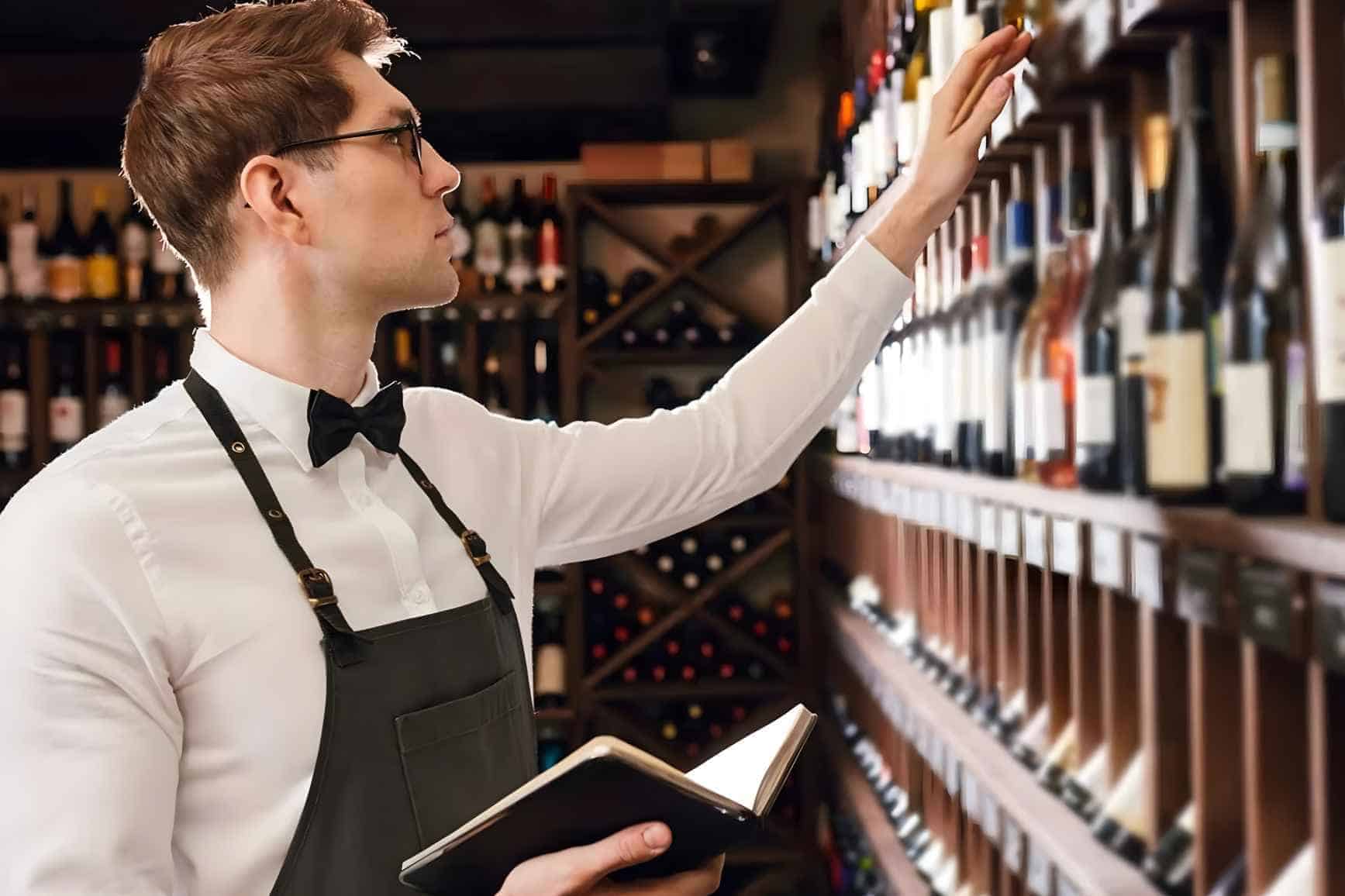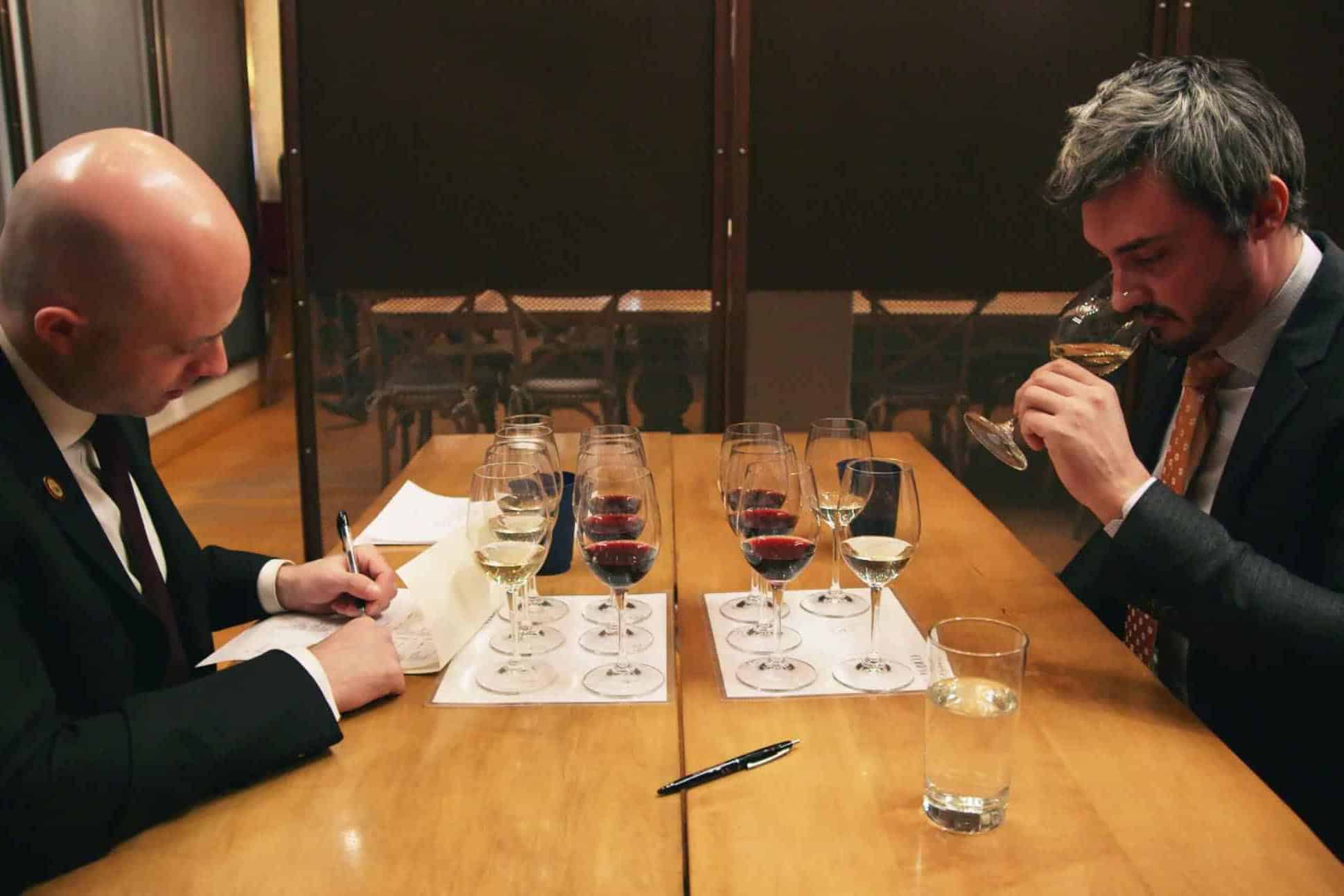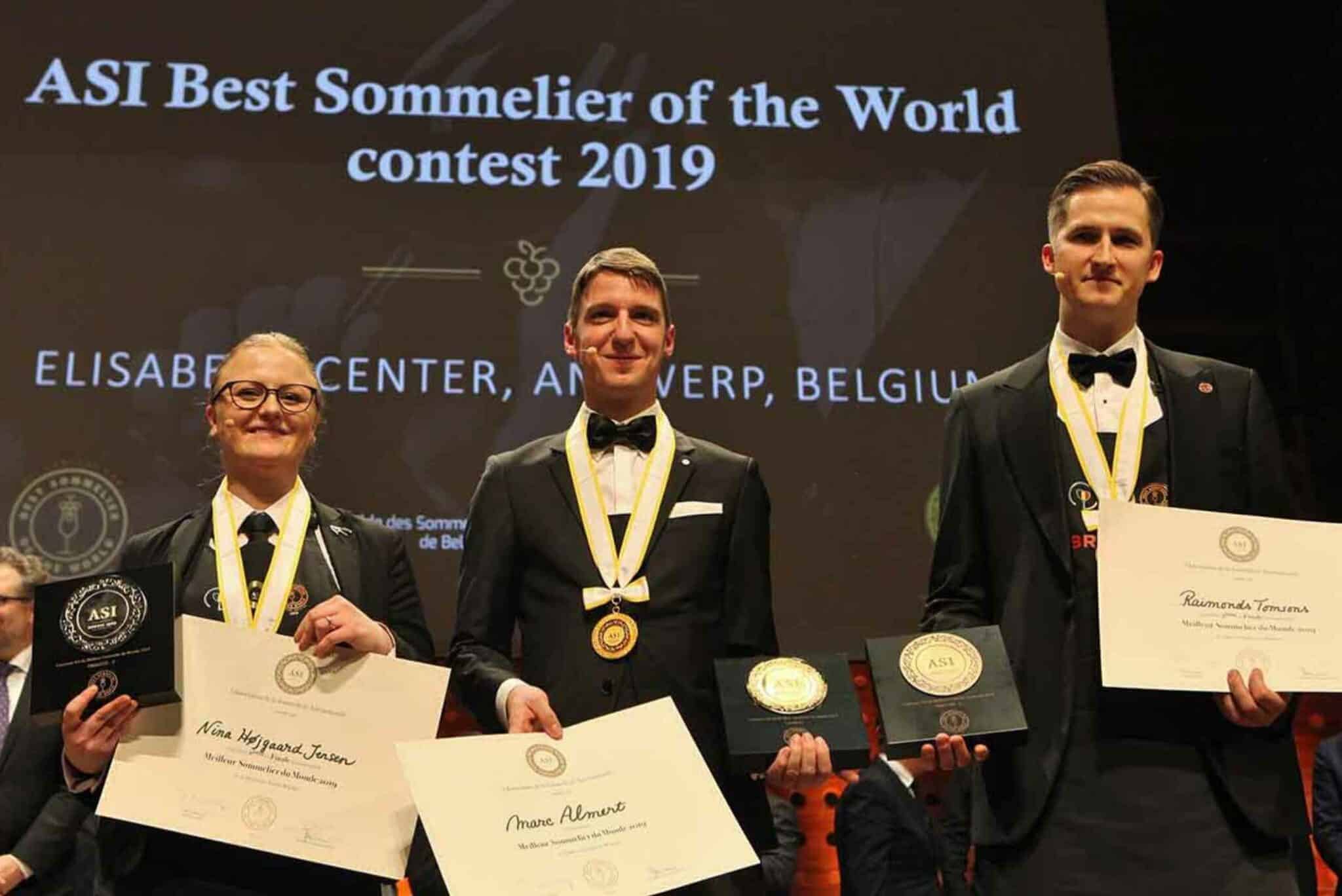When it comes to wine, beginners will come across the word ‘Sommelier’ at some point in their journey. They are an essential group of people that all wine enthusiasts should know. This article will answer the questions ‘what is a sommelier’ and ‘what do they do?’.
What is a Sommelier?

If you search the Internet, you’ll see that the most common description of a sommelier is a wine steward. This gives them the role of taking care of all sorts of wines. It’s a word that the Court of Master Sommeliers frequently use in most of their professional wine certificates.
These professionals are specially trained to work primarily in restaurants and be wine experts from which the customers can ask for advice. They should know about the wines that may or may not be included in a restaurant’s wine list. Knowing this information benefits them to help the customers pair their food with the right choice of wine.
In terms of origin, the word Sommelier came from the French word ‘sommerier,’ which means herdsmen. You can read the word as suh-mel-yay.
It also has a Latin origin because of the word sagma, which refers to the bags strapped on animals that usually carry wines and other things. Then we mix the French word earlier that relates to the people caring for the animals.
Generally speaking, a Sommelier is considered a wine expert in all aspects. Other wine expert terms are used interchangeably with sommeliers like Wine specialist, wine professional, wine steward, wine connoisseur, and professional wine taster.
Roles of a Sommelier

While Sommeliers are known to be wine caretakers, their expertise covers a lot of different areas when it comes to wines. To be a sommelier, you should be well aware of a wine’s historical background, taste, and sensation and choose the right wine for a set of food. This section will show you the roles a sommelier plays in their daily work.
Inventory Manager
Sommeliers working in restaurants must know how to manage their own wine inventory. One of the significant roles of a Sommelier is to be aware of the restaurant’s inventory and keep track of its wine list.
These professionals should also know how to train other restaurant staff about wines. Generally, a Sommelier should see the wine program and inventory of the restaurant they are working at.
Expert in Wine Theory
One basic knowledge that Sommeliers should know is Wine Theory, which involves learning more about the wine’s history, composition, and origin.
With this information, Sommeliers can effectively select a wine suitable to a person’s taste and preference. This information is also used in the master sommelier exam, so wine professionals should be aware of it.
Wine Taster
Being a Sommelier also means giving people a definitive description of how wine usually tastes inside your mouth. They should be able to do a blind taste test and identify a type of wine without needing to drink it. This skill helps wine professionals provide customers with a selection of wine that best suits them.
Wine Server
Last but not least, the primary role of a Sommelier is to serve wine to customers. Their task is to make the wine experience of each customer the best they can have. Once a customer has chosen a bottle, the Sommelier will fetch it and present it to them.
Then, the wine professional will pour an ounce of wine into the bottle and wait for the customers to have a taste. Next, pour the standard glass, which is 5 ounces of wine. They will do all necessary to provide their customers with the best wines, which may include chilling or decanting the wine.
How to Be a Sommelier

You can become a Sommelier by having a certification from a highly regarded organization when it comes to wine professionals. Some examples are the Court of Master Sommeliers, International Sommelier Guild, Wine and Spirit Education Trust, and the Institute of Masters of Wine. Each one offers a distinct class type for individuals who want to become Sommeliers.
Before becoming a Sommelier, you should first know the three levels of Sommeliers that most wine schools offer. The first level is the Introductory Sommelier, focusing on wine theory, deductive tasting, and service etiquette.
Next is the Certified Sommelier, where students are expected to show mastery of the three essential topics studied in the first level.
After that, we have the third level, which is the Advanced Sommelier. They cover more detailed lessons on the essential topics taught during the first and second levels. Lastly, the highest level of being a Sommelier is the Master Sommelier, which we will explain further in the next section.
At the Court of Master Sommeliers, you can get the first level by attending two full days of classes with an assessment at the end of day two, where students must get at least 60% to pass. The level 2 certification requires someone who finished the first level within three years and gives the one-day class and assessment.
For the Advanced Sommelier, you need to join the three-day class and three-day assessment with a restaurant service of two years or more. We must notify you that 25 to 30% of those who take it pass the certification.
Since the Master Sommelier is the highest level to give, you need 75% or higher, and you need to pass the total assessment in three years, or you will need to retake it. An individual needs to be knowledgeable when it comes to wine to be able to pass the assessment and earn a certification.
Sommelier vs Master Sommelier

At first glance, some may be able to tell how a sommelier differs from a master sommelier. However, there are depths in how these two collide, and the roles they play are not exactly different, but there are some variations. If you want to know the difference between a sommelier and a master sommelier, continue reading this section below.
The difference between a Sommelier and a Master Sommelier can be easily described as how a workplace has different job levels depending on a person’s ability and knowledge of their work.
A Sommelier is simply someone who knows a lot about wines and has received a certification for them. It has different levels, such as Intro, Certified, and Advanced.
The highest level of a Sommelier is called the Master Sommelier. As the name implies, this person is very knowledgeable about wines, and there’s a certain degree to the level of knowledge that they have.
Not all Sommeliers can reach the Master Sommelier level, showing how challenging it is to achieve. It’s the highest level of all wine professionals to ever exist.
Frequently Asked Questions

Now that we’ve covered almost everything there is to know about Sommeliers and their roles, it’s time to answer the most frequently asked question regarding them.
There might still be some questions bothering you in the view of someone who’s only starting to learn more about wines. We dedicate this next section to some of the questions that are usually asked regarding sommeliers and their roles.
How much does a Sommelier earn?
As mentioned, there are four levels of being a Sommelier, so it boils down to it. Level 1 Sommeliers’ wages are at $ 55,000 on an annual average. On the other hand, Certified Sommeliers earn an average of $ 62,000 annually.
The third level, also known as Advanced Sommeliers, can make an average of $ 87,000 per year. At the same time, the last group, Master Sommelier, earns twice as much at a $ 164,000 annual salary.
How do you ask a Sommelier for Wine recommendations?
When dining out, it’s better to ask the resident Sommelier for wine advice on which one you should pick. Talking to them will give you a clear perspective on what you should do and help you choose the best wine for your ordered food.
You first need to ask them about the different wines on the list. They can give you an in-depth explanation of each one of them.
Next, do mention the meal you ordered and how much your budget is. This will give them a better idea of which wine is more suitable for you. Take small sips of the wine they offer before choosing which one you like the best. If there’s something that you do not like with the wine given to you, immediately notify them so that they will be aware.
Summary
The sommelier is a profession that involves being passionate about wines. This job requires extensive knowledge of all wines and how they differ from one another so that you can relay them all to your customers. We hope this article was able to help you fully understand the answer to the question ‘What is a sommelier?’

George Moore, co-founder of Wine Flavor Guru, is a charismatic entrepreneur with a rich background in California’s wine industry. Alongside Sylvia, he transformed a Sonoma County vineyard into a source of premium wines. George’s expertise in sourcing exceptional grapes and his approachable style make wine appreciation both accessible and engaging.
